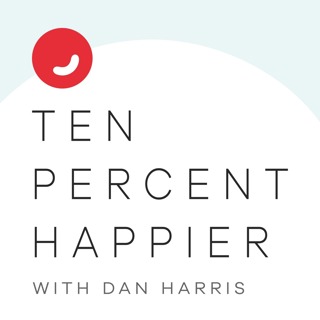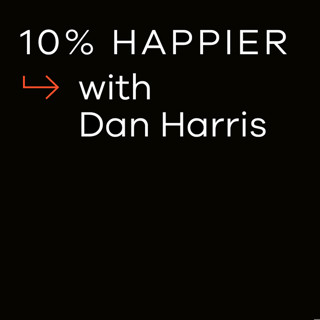
Anderson Cooper, CNN Anchor
Anderson Cooper, a 23-year news veteran, is the anchor of CNN's "Anderson Cooper 360" and a contributor to CBS News' "60 Minutes." His reporting for a "60 Minutes" piece on mindfulness led him to start his own meditation practice, and he talks at length in our interview about how it has brought him some peace and perspective after dealing with the deaths of his father and brother, being "incredibly introverted" and being a good journalist in the age of Twitter.
4 Okt 201740min

Nicholas Hoult & Danny Strong, 'Rebel in the Rye'
The new biopic about reclusive author J.D. Salinger explores his formative years, from struggling writer, to serving in World War II, to publishing his famous and controversial 1951 novel, "The Catcher in the Rye," to using meditation to deal with PTSD. Actor Nicholas Hoult, who plays Salinger, and Danny Strong, who wrote and directed the film, are both meditators themselves and talk about diving into this tortured author's mind to bring his story to the big screen.
27 Sep 201731min

Tom Bergeron, 'Dancing With the Stars' Host
On a live show, anything can happen, but Tom Bergeron trusts he can handle it. The host of ABC's hit dancing competition show, "Dancing With the Stars," has been meditating for over 35 years and credits his years of TM practice for keeping his cool and "responding appropriately" on the fly in front of judges, contestants and a live studio audience, as well as managing "a really bad temper."
20 Sep 201738min

Gretchen Rubin, 'The Four Tendencies'
In her new book, "The Four Tendencies," best-selling author and speaker Gretchen Rubin breaks down what she denotes as four different personality profiles -- Upholder, Questioner, Obligor and Rebel. Rubin, who is also the host of the popular podcast, "Happier with Gretchen Rubin," and calls herself an "Upholder," says "The Four Tendencies" help explain how we form or break habits, how we respond to "inner" expectations of ourselves, such as keeping a New Year's resolution, and how we meet "outer" expectations from others, such as making a work deadline.
13 Sep 20171h

Daniel Goleman, Dr. Richard Davidson, 'Altered Traits' (Bonus!)
Dan Goleman and Richie Davidson, both titans in their respective fields and best-selling authors, have co-written a new book out now entitled, "Altered Traits: Science Reveals How Meditation Changes Your Mind, Brain and Body." Goleman, a renowned psychologist and science journalist, and Davidson, a prominent neuroscientist and founder of the Center for Healthy Minds, talk about their cutting-edge research in this new book, comparing brain activity of "Olympic level" meditators (such as monks) to meditation beginners and how mindfulness can be restorative for brain health.
8 Sep 20171h 11min

Justin von Bujdoss, Buddhist Chaplain at Rikers Island
Justin von Bujdoss was working as a hospice chaplain in New York City, traveling all over the five boroughs and greater metropolitan area to visit patients, when he began volunteering at the city's notorious Rikers Island Jail. Von Bujdoss started out teaching meditation to groups of female inmates, but now he's the first ever staff chaplain for the city's Department of Corrections, providing spiritual and emotional support for officers, and he talks about seeing suffering on both sides of prison life.
6 Sep 201747min

Jaimal Yogis, A Surfer's Quest for Zen
Being out on a surfboard, when it's just you and the ocean, is "a meditative space," Jaimal Yogis said, "There's a certain amount of solitude that's just built into the experience." The longtime surfer and meditation teacher talks about his first memoir, "Saltwater Buddha," a coming-of-age story about running away at 16 and buying a one-way ticket to Maui to surf, joining a monastery and almost becoming a Zen monk and then launching a journalism career, and his second memoir, "All Our Waves Are Water," which is out now.
30 Aug 201744min

Robert Wright, 'Why Buddhism is True' (Bonus!)
"Progress on the meditation path tends to involve moral progress. You tend to become a better person as well as a happier person... I personally think that you should not be allowed to call yourself enlightened if you're a jerk," said Robert Wright, a best-selling author with extensive knowledge on philosophy and religion. Wright, whose new book out now is titled, "Why Buddhism is True: The Science and Philosophy of Meditation and Enlightenment," offers his thoughts (and skepticism) on what it means to achieve true enlightenment and whether mindfulness meditation could change the world.
25 Aug 20171h 2min






















